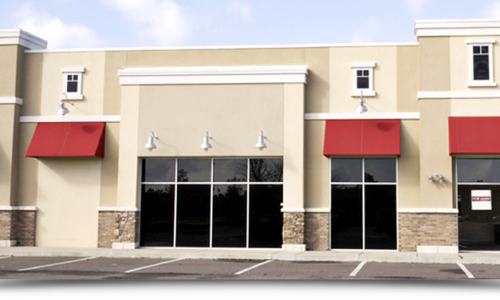1031 Exchanges Explained
What is a 1031 Exchange?
A 1031 Exchange allows you to defer the taxes from a commercial property sale by reinvesting the proceeds from the sale in “like-kind” property, within the specified time frames, potentially saving you tens of thousands of dollars.
There are two critical deadlines that must be met.
Deadline #1: The 45-Day Property Identification Period
Within 45 days of the sale of your property, you MUST:
- Identify a replacement property in writing to an intermediary, specifying the property you want to acquire.
- You can identify three potential properties for the exchange as long as you eventually close on at least one of them.
- The identification of the property must be specific and not ambiguous.
- As an alternative, the 200% rule allows you to designate more than three properties, which may add up to a maximum of 200% of the exchange value.
- You can identify three potential properties for the exchange as long as you eventually close on at least one of them.
- The proceeds from the sale of the property must be held by a qualified intermediary, also known as an exchange accommodator.
- To avoid taxes, the total value of the replacement property or properties must be equal to or greater than the relinquished property.

Deadline #2: The 180-Day Exchange Period
- You MUST close on the new property or properties within 180 days of the sale of the old or relinquished property.
- The countdown on both deadlines begins simultaneously when the sale of your property closes.
- There’s no limit to the number of times you can do an exchange so you only have to pay taxes on the final sale for which you want to realize or cash-out on the gains.
If your debt decreases in the exchange, the difference is treated as income–sometimes called boot–and is taxable as is any cash you may have left over after the exchange

NOTE: 1031 Exchanges can only be executed with investment and business property, not primary residences.
Q&A
- What is a like-kind property?
According to the IRS, properties are of like-kind if they’re of the same nature or character, even if they differ in grade or quality. Real properties generally are of like-kind, regardless of whether they’re improved or unimproved.
- How do I find a like-kind property within 45 days?
This can be tricky, which is why it is recommended that you work with a broker who has expertise in both the type of properties you are looking for and 1031 Exchanges
- Why is broker expertise important?
There are thousands of properties listed, many expired or no longer available. Some have encumbrances or other issues that could delay the process impacting your ability to close or your timeline, or both, not to mention the hours of your own time you’ll have to put in to do the research. An experienced broker can take all of that stress off your plate and provide you with a fully researched list of viable properties that meet or exceed your criteria.
All real estate investments carry risks. Nothing in this post shall be construed as tax or investment advice. A buyer and their tax, financial, legal, and construction advisors should conduct a careful, independent investigation of any property to determine to your satisfaction the suitability of the property for your needs.
#NetLeasePro #NNN #CRE #Retail #1031-Exchanges#NetLease #CREInvesting #STNL #BarryWolfe
